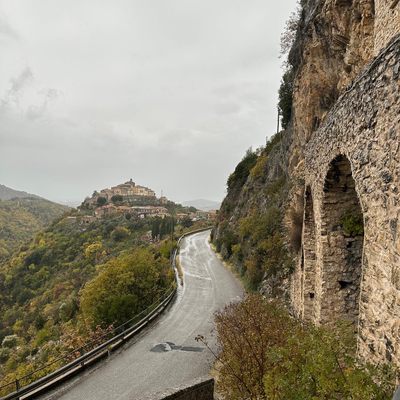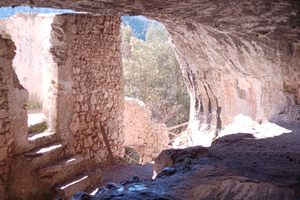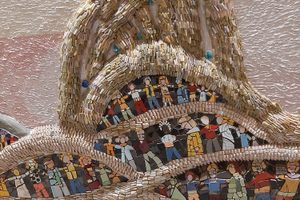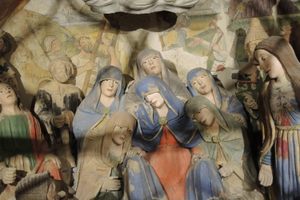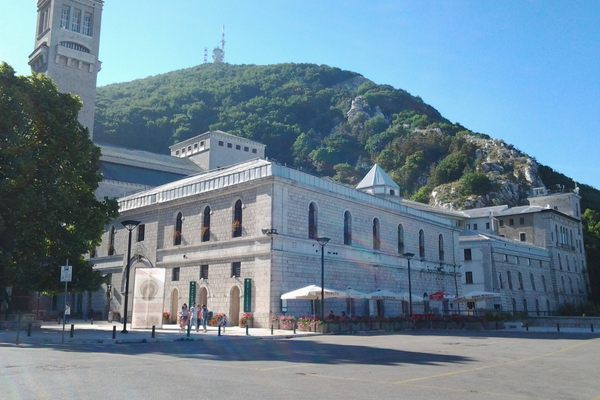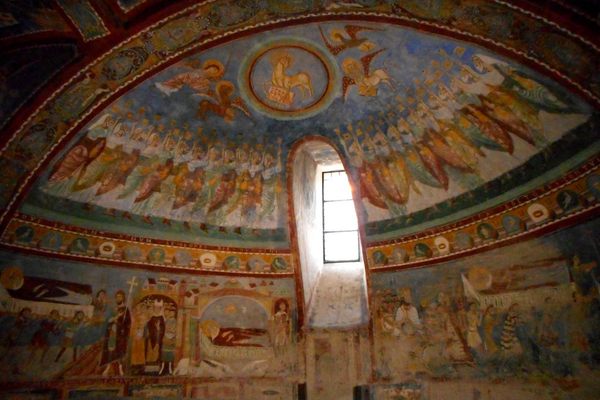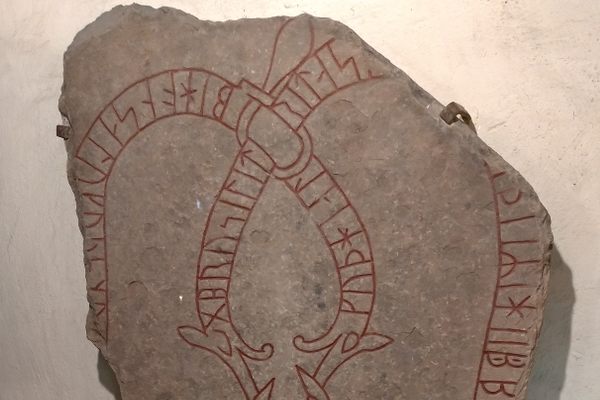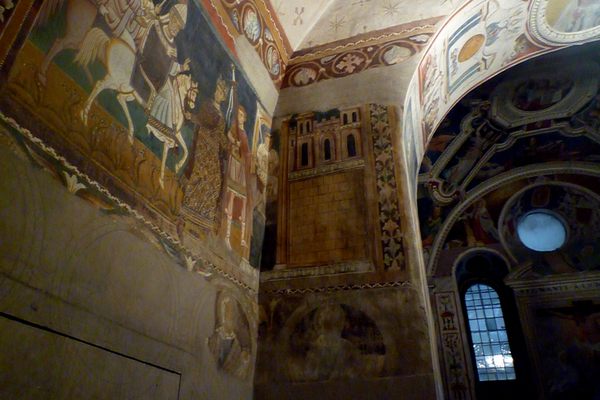About
The Eremo di San Cataldo (Hermitage of Saint Cataldus) is built into a steep cliff by the road connecting Contigliano to Cottanello in the region of Sabina, northeast of Rome.
Its origins are unclear, and some historians believe that it could date back as far as the 10th century, a time when the nearby Abbey of Farfa controlled the region. However, it is first mentioned in the 16th century, along with the attribution to Saint Cataldus, seventh-century Bishop of Rochau and patron saint of the southern city of Taranto. The reason for this connection is obscure, and many theories have been discussed as to why this saint was chosen.
The present staircase to the site was built in 1888, along with the main road. It leads to the church, the only structure that survives today, partially dug into the rock.
The church plan is rather simple, with a vestibule and a frescoed chapel with an altar made of the famous local red marble from Cottanello (which was also used in the construction of St. Peter's Basilica in the Vatican), crowned by an upper floor with a bell tower.
The 11th- and 12th-century frescoes were discovered by chance after 1944, when the Germans detonated a mine on the road below, shattering the plaster holding Baroque frescoes that had been painted over them in the 17th century. The older, more valuable frescoes beneath include a remarkable Redeemer fresco, on the left side of the chapel, painted in a very Byzantine style. A Greek tau symbol painted in the fresco has been attributed to St. Francis, who traveled widely in Sabina, where he founded four monasteries.
Related Tags
Know Before You Go
Guided visits can be booked on the website of the town of Cottanello.
Flavors of Italy: Roman Carbonara, Florentine Steak & Venetian Cocktails
Savor local cuisine across Rome, Florence & Venice.
Book NowPublished
July 13, 2020



